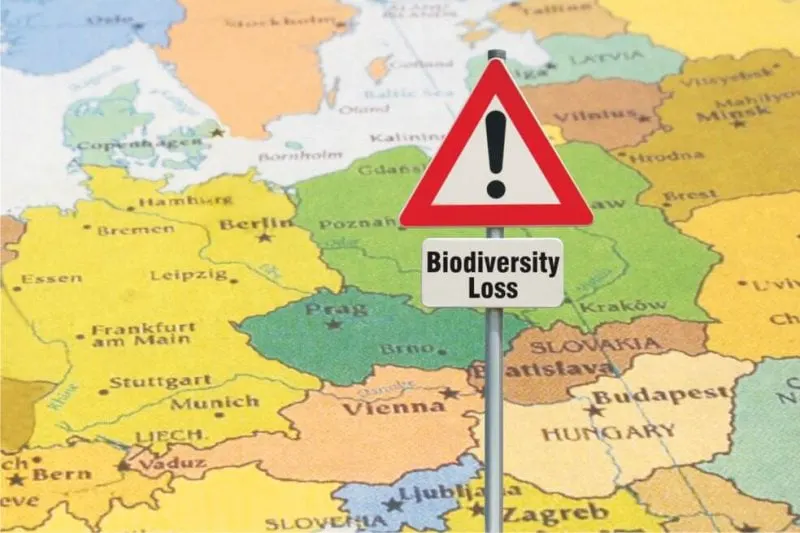Europe’s biodiversity faces grave threats, while pro-organic farm policies offer inadequate solutions
Europe’s biodiversity faces grave threats, while pro-organic farm policies offer inadequate solutions


The European Environment Agency (EEA) released its “State of Nature in the EU” report [October 19], revealing that wildlife species and natural habitats throughout the continent are struggling despite EU member states’ commitments to protect them. The EEA report, which concluded that “current agricultural practices are by far the most dominant driver affecting habitats and species,” came during the same week that the European Parliament approved its negotiating position on a new Common Agricultural Policy (CAP) that was seen by many as prioritizing intensive agriculture over the environment.
The consequences of EU agricultural policies were put in stark relief by the “State of Nature” report, which revealed that 81 percent of protected natural habitats have either a poor or bad conservation status and only a quarter of the species identified by EU nature directives are receiving the protection they need.
This call for “fundamental changes” is unlikely to include a relaxation of the EU’s current regulations restricting plant breeding innovations that could minimize ag’s environmental footprint. Leading scientists and researchers have said that the EU’s current policies deprive European farmers “of more climate resilient and more nutritious crop varieties that are urgently needed to respond to current ecological and societal challenges” and that current regulations “cannot be scientifically justified.”
Read the original post

 | Videos | More... |

Video: Nuclear energy will destroy us? Global warming is an existential threat? Chemicals are massacring bees? Donate to the Green Industrial Complex!
 | Bees & Pollinators | More... |

GLP podcast: Science journalism is a mess. Here’s how to fix it

Mosquito massacre: Can we safely tackle malaria with a CRISPR gene drive?

Are we facing an ‘Insect Apocalypse’ caused by ‘intensive, industrial’ farming and agricultural chemicals? The media say yes; Science says ‘no’
 | Infographics | More... |

Infographic: Global regulatory and health research agencies on whether glyphosate causes cancer
 | GMO FAQs | More... |

Why is there controversy over GMO foods but not GMO drugs?

How are GMOs labeled around the world?

How does genetic engineering differ from conventional breeding?
 | GLP Profiles | More... |

Alex Jones: Right-wing conspiracy theorist stokes fear of GMOs, pesticides to sell ‘health supplements’




 Trust issues: What happens when therapists use ChatGPT?
Trust issues: What happens when therapists use ChatGPT? California, Washington, Oregon forge immunization alliance to safeguard vaccine access against federal undermining
California, Washington, Oregon forge immunization alliance to safeguard vaccine access against federal undermining Fighting deforestation with CO2: Biotechnology breakthrough creates sustainable palm oil alternative for cosmetics
Fighting deforestation with CO2: Biotechnology breakthrough creates sustainable palm oil alternative for cosmetics Viewpoint — Fact checking MAHA mythmakers: How wellness influencers and RFK, Jr. undermine American science and health
Viewpoint — Fact checking MAHA mythmakers: How wellness influencers and RFK, Jr. undermine American science and health 30-year-old tomato line shows genetic resistance to devastating virus
30-year-old tomato line shows genetic resistance to devastating virus The free-range chicken dilemma: Better for birds, but with substantial costs
The free-range chicken dilemma: Better for birds, but with substantial costs Viewpoint: Video — Big Solar is gobbling up productive agricultural land and hurting farmers yet providing little energy or sustainabilty gains
Viewpoint: Video — Big Solar is gobbling up productive agricultural land and hurting farmers yet providing little energy or sustainabilty gains ‘You have to treat the brain first’:Rethinking chronic pain with Sanjay Gupta
‘You have to treat the brain first’:Rethinking chronic pain with Sanjay Gupta
